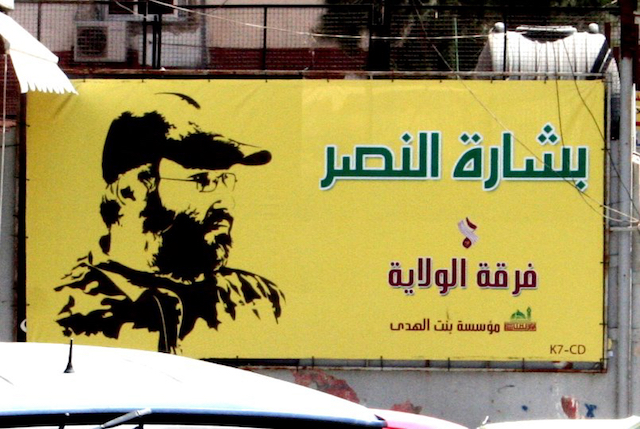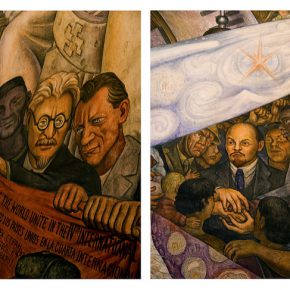Daniel Silva’s series of thriller novels featuring Gabriel Allon, an Israeli spy, are a phenomenon among bestsellers. Millions of English-language copies from this have been sold in the sixteen years this series has been in print, and translations are available in dozens of languages. A new novel appears near-annually, and in a short time, hits the top of the New York Times bestseller lists. At least in fictional terms, Gabriel Allon is the Mossad’s most successful spy.
The English Spy (2015) is one of those summer reads that raises more questions than its author is prepared to answer. Or indeed, to recognize that he is answerable for the questions he refuses to acknowledge. The novel goes through fairly standard plot peregrinations of assassinated British royalty; a sub rosa official commission to a British-Israeli duo to find the bombers; tracking down an Irish New IRA killer through much of western Europe; bombings and kidnappings; complications from the Russian and Iranian secret services; and, many dead bodies later, revenge as an evil Irishman gets two bullets through the brain. If the plot is fairly tired stuff, Silva does rely on extensive local research in Europe to provide the novel with a sense of geographic and visual credibility.
Gabriel Allon, the Israeli half of the chase team, is as comfortable in his rural cottage at the Cornwall seaside as he is in his apartment on Jerusalem’s upscale Narkiss Street. He is a cosmopolitan international in his sixties, due shortly to become head of the Mossad. His British counterpart for the mission, Christopher Keller, is a former SAS man gone rogue but in the process of re-entering government service. Keller is the preternatural killer of the novel, the one who blends into the landscape before emerging to dispatch several men with little effort.
The novel merges old and new empires that are discovering each other’s uses and possible common cause. In Silva’s plot politics, the British can work through their Israeli partners and conceal their hand against Russians, while Israelis can use this connection to fight against an Irish-Iranian terror nexus. Collapsed but still-struggling British imperialism can find an ally in Israeli regional hegemony and the intelligence network it controls. The interests of two nations – or of Europe and Asia – have been yoked. The characterization of Allon and Keller’s cooperation serves as a fictional corrective to the current troubled relationship between Europe and Israel. As Silva said in a 2011 interview “It is because of Europe’s behavior that started the Zionist spark in the first place and so to suffer so much ill will and scorn from Europe, its people, and many, many in government and their religious community is a little tough to take for a lot of Israelis.”

The anti-colonialism of Irish nationalism, on the other hand, gets construed in the novel as a free agent for global terrorism. As with so many other US fictions dating from the nineteenth century forwards, Ireland provides a negative stereotype of an irrational nationalism that generates boundless violence. Much of the novel’s action takes place in Ireland, and its evil protagonist Quinn is a throwback to an Ireland of the South Armagh Brigade and the Troubles. The treatment of Ireland as a source of violent global turmoil points out that Silva’s real problem is with anti-colonialism. Ireland is to England as Palestine is to Israel, and so Irish and Palestinian terrorists are interchangeable.
Nationalism is a strong but yet contingent force in this novel. National identity is a fluid, impermanent condition that a state can shape, manipulate, or reformulate anew. National identity lurks beneath public surfaces, an authentication underneath a multiplicity of multinational identities adopted in order to serve states. Madeline Hart, a Russian child, gets raised by the KGB as an English-speaking British child in order to operate under deep cover as an intelligence asset. Eventually she becomes the British prime minister’s lover. Other characters incessantly slip and slide through passport-verified false identities. These are the slippery agents of the state, or its near-equally slippery opponents.
When Gabriel is injured in a Brompton Road terror bombing that kills dozens, he takes advantage to disappear in a supposed death that provides concealment as he searches for Eamon Quinn, the Real IRA bomber acting at the behest of a Putin-like Russian leader angry at having an energy contract cancelled. False death is just another means of identity alteration, but with the purpose of killing more efficiently from concealment. The innocence of Huck Finn and Tom Sawyer enjoying their supposed death has here become the calculated camouflage of state-sponsored hunter-killers.
In The English Spy’s politics, service demands devotion. The nation-state’s subterranean battles are a continual ceremonial affirmation of the state’s will to live. The novel purports to provide a quasi-realistic explanation of the viciousness of the struggle and represents anti-terrorism as the central, most important function of government. Without such valiant underground warriors and the massive intelligence organizations they spearhead, the state would be driven mad by terrorism and unable to provide basic public security. Thus the state absorbs and feeds off the life energies of its agent-devotees.
Silva is an explicitly political novelist, one who includes an appendix filled with geopolitical observations. Gabriel Allon becomes the voice of Silva’s neo-conservative foreboding. As Allon returns to Israel towards the novel’s conclusion, and observes the rise of Islamist politics, Silva interjects an observation that “The American president had allowed the old order to topple without a viable alternative in place, a reckless act with no precedent in modern statecraft. And for some reason he had chosen this moment in time to throw Israel to the wolves.” The latter line is a reference to the Iran nuclear agreement, with which Silva earlier in the novel indicated his fundamental disagreement. In Silva’s Bush-afflicted imperial worldview, the US president – Obama in this instance – had an unexercised capacity to sustain an older order, or shape its replacement.
Obama’s putative failure to control the nature of social and political change throughout the Middle East will shape the problems Allon will now face as Mossad head. Allon will provide the counter-force needed; he stands as a wise, long-sighted, and enduring agent of stability in a regional characterized by pervasive social collapse and rampant radicalism. As a representative leader of a dynamic Israeli state, Allon is as good a geopolitical analyst as he is a field operative, with requisite skills in torture and assassination. What marks and separates Allon as a civilized man among cruel savages is his preferred work as an art restorer caring for Caravaggios and other old master paintings while dropping Arabs, Russians, Persians, and their wild Irish henchmen as necessary.
In The English Spy, Palestinians are people with a penchant for violence, but lacking first-class technical skills. Gaza hangs forebodingly on the far horizon and Allon sits in his garden on Narkiss Street gazing southwards, anticipating missiles. Even as they do not speak, silent and glowering Palestinians are the anti-civilization.
To read a Gabriel Allon novel is to realize how distant much American popular fiction is today from the decent humanity of Upton Sinclair’s hugely successful Lanny Budd novels (1940-1953) which sought to explain Europe’s bloodshed and mobilize sympathy for oppressed peoples, especially European Jews. Lanny Budd was a democrat who rescued; he did not torture or kill. Times are different now. In an Allon novel, maimed or dead citizens are only innocent bystanders: it is the state that is the aggrieved victim.
The hypothesis of the thriller novel here is that the state has first claim on revenge, although its agents may be able to enjoy the deed for their own personal reasons. The novel asks us as readers to enjoy the revenge fantasy at both these levels, collective and individual. To read Gabriel Allon’s story is to participate in the enactment of imperial citizenship.
Photographs courtesy of Magne Hagesæter and Martijn Dekker. Published under a Creative Commons license.





